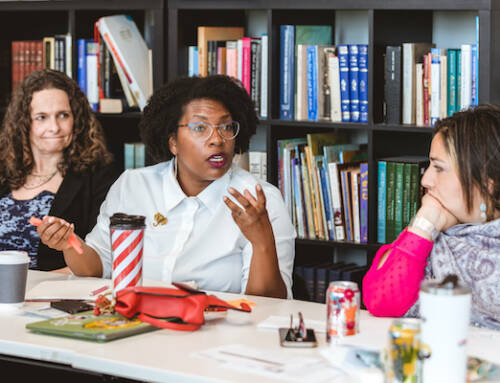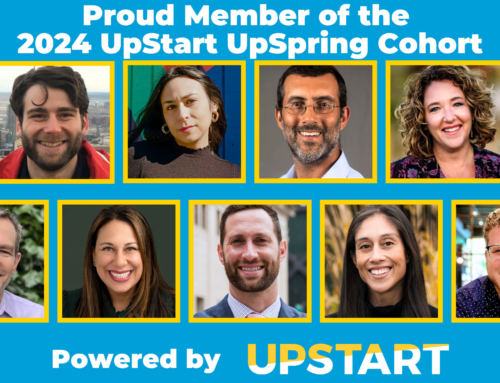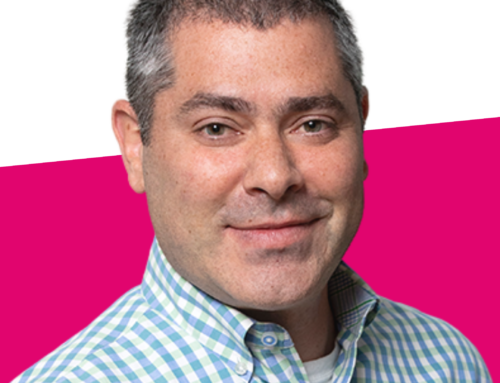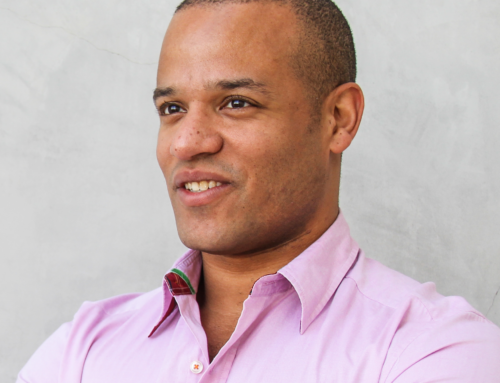In an article in a recent The New York Times Magazine entitled “Does Your Language Shape How You Think,” Guy Deutscher writes about a remote Australian aboriginal tongue, the Guugu Yimithirr. He explains that while English speakers use “egocentric coordinates,” using our physical selves as the reference-point to describe the space around us, pointing left, right, in front, and behind us, a Guugu Yimithirr speaker uses “cardinal directions” – fixed geographic directions, north, south, east, and west – even in intimate spaces. “For example,” Deutscher writes, if they want you to move over in the car to make room, they’ll say move a bit to the east.'” He continues,
“If you saw a Guugu Yimithirr speaker pointing at himself, you would naturally assume he meant to draw attention to himself. In fact, he is pointing at a cardinal direction that happens to be behind his back. While we are always at the center of the world, and it would never occur to us that pointing in the direction of our chest could mean anything other than to draw attention to ourselves, a Guugu Yimithirr speaker points through himself, as if he were thin air and his own existence were irrelevant.”
This awareness of the transience, even irrelevance, of the self, is a very Jewish idea. A Hassidic saying teaches that in each individual’s pocket, at all times, there should be a little slip of paper that reads: anokhi afar va’efer – I am earth and ashes. This is a reminder that we are not at the center of the universe, that we are but a speck in a wide world, and that we should learn to speak and think accordingly, like the Guugu Yimithirr, in cardinal directions, more aware of how ultimately insignificant we are. And generating this awareness is one of the primary purposes of the High Holidays.
But Judaism doesnt leave it at that. The Hassidic saying continues. As it is quoted in Martin Bubers Tales of the Hasidim: Later Masters, everyone must have two pockets, so that he can reach into the one or the other, according to his needs. In his right pocket are to be the words I am earth and ashes, and in his left, for my sake the world was created.
This second pocket is essential. Because the world was built for me, I am responsible for impacting it. While I must learn to use cardinal directions, I must also continue to use egocentric coordinates, putting myself at the center. This, too, is an inexorable message of the High Holidays. Even though were here only for a short time, even though the world is vast and we are miniscule, were not off the hook. We matter, and, even more, our actions matter so much that they can shape that vast world beyond us.
The challenge posed by this time of year is to learn to stand steady amidst the two, often-conflicting, modes of thinking about the world that those sayings encompass. We tend to get stuck in one realm or the other, either resigning ourselves to the enormity of it all, afraid to make an impact, or, over-confident, forgetting that when we point to ourselves and the power we have to make changes, there is an infinity around us which will always be bigger than we are.
Wallace Stegner, in the first chapter of his book Crossing to Safety, writes about a group of friends in their mid-60s, reflecting back on their lives. One character muses: What ever happened to the passion we all had to improve ourselves, live up to our potential, leave a mark on the world instead, the world has left marks on us. When we impact the world, the world impacts us. It takes tremendous strength and courage to continue to try to touch that which is beyond us when we have been touched with the awareness that our power is so limited. And when we act with this heightened awareness, it deepens the efficacy of our actions and interactions.
This time of year is our annual opportunity to explore our passions. To live up to our potential, to leave a mark on the world. It allows us to stand, for a moment, newly created, hopeful selves. But it is also an opportunity to take a step back and gain a wider perspective, to see the worlds impact on us, to be humbled by its expanse. The notes in each of our pockets must be in constant dialogue with one another. When we have a more realistic understanding of the environment in which we are functioning, we have a greater possibility of making an impact upon it. And when we challenge ourselves to dream big, we may even leave our mark upon the world.
May we be blessed this year to point to ourselves and through ourselves, individually and collectively, with renewed humility and vigor, to make our impact, improving ourselves, our communities, and our world, existing in the rich, multi-faceted, complex space amidst our pockets.
This piece is cross-posted at eJewish Philanthropy, an independent Jerusalem based resource.
Our purpose is to enable entrepreneurs to bring bold Jewish ideas to light. We help them reach Up to people in new ways that are meaningful, more inclusive, and create a brighter future for our Jewish community and the world we share.





